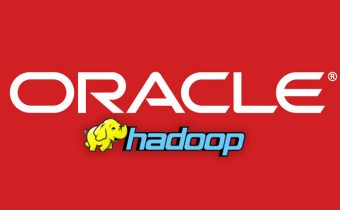Using OSS to modernize outdated proprietary medical IT systems

Konkuk University Medical Center (KUMC) is one of the biggest medical centers in South Korea with 2400 employees, including 400 doctors and 600 nurses. The medical center found in 2018, that its outdated UNIX equipment and proprietary web application server led to high maintenance costs and difficulty collaborating with external groups. KUMC decided to search for new flexible and cost-effective solution to build his new medical information system, and It decided to go for an open source solutions. In August 2018, Red Hat announced that it has partnered with the South Korean medical center to build an open source medical info system using Red Hat Enterprise Linux OS and Jboss […]
How a state in India save $10M yearly using OSS in schools

Sampoorna is the implementation of an open source software named, Fedena, by Government of Kerala, India. It is a school management system project developed to automate the system and process of over 15,000 schools in the Indian state. The main objective of ‘Sampoorna’ school management software is to facilitate the Principals, Head Masters and teachers to easily implement, track and monitor all activities of students of their school and that of the school itself. Cumbersome processes the project offers, such as preparation of transfer certificate; copying of admission register; generating of reports related to students, parents, teachers and non-teaching staff; lists for scholarships; preparation of progress reports, SSLC examination database, promotion list […]
Stories of successful open source business models

Many of developers, who seek a good business model to their startups or companies, considered OSS isn’t profitable, but that is wrong. Companies can grow with open source at the heart of their business model. If you’d like to build a business around open source, here are four successful models to consider. 1- Support and services Model Red Hat is the most obvious proof that selling open source software can be profitable. Like Canonical, it offers its software for free and charges enterprise users for technical support services. Red Hat also sells subscriptions to its “premium” distribution, Red Hat Enterprise Linux, which appeals to enterprise users due to its rigorous […]
How Lufthansa Technik optimize their airline operations using OSS

Lufthansa Technik, one of the world’s largest independent provider of airline maintenance, repair, and overhaul (MRO) services, wanted to create a digital platform for the aviation industry. This platform, called AVIATAR, would help airlines avoid delays and cancellations by using data to better organize and schedule maintenance. The company built and operated AVIATAR using a hybrid cloud infrastructure based on enterprise open source software from Red Hat. Nowadays, Lufthansa Technik provides an innovative digital platform that helps the world’s airlines optimize their operations. Challenge: Lufthansa Technik wanted to help airlines use data to better organize and schedule maintenance events—to improve costs, productivity, and the passenger experience. The company’s solution, AVIATAR, […]
How Government of British Columbia uses open source to improve services for citizens

The Government of British Columbia, Canada, needed to innovate its public services to develop digital offerings faster and make them easier to use. It established the BC Developers’ Exchange to take advantage of the innovation of private sector technology companies and entrepreneurs and support collaboration using open source tools. As a result, the province can now provide agile, collaborative development following a DevOps approach, create and update services faster for citizens, and balance innovation with security requirements. Challenge: Evolve digital services to meet modern demands The Government of British Columbia wanted to improve its technology offerings—and its user experience. However, its existing data center infrastructure was too slow and fragmented […]
Joomla CMS.. An Open Source Success Story.

Joomla is a free and open source content management system (CMS) designed to assist users in building websites and other online applications. The name Joomla, which was chosen from thousands of community suggestions, is a phonetic spelling for the Swahili word “Jumla,” which means “all together” or “as a whole“. The Joomla logo is made up of four “J’s” rotated and linked together that represent the community coming together as one. The ecosystem of Joomla developers and users provide products and services to the Joomla community which has more than one-half million members and more than 20,000 developers. Joomla’s main open source CMS competitors include WordPress and Drupal. What Can […]
How Open source helps the Europe’s 3rd busiest airport

Amsterdam’s Schiphol airport, Europe’s third busiest airport, decided recently to turn to using open source software to become more efficient and offer better service. Servicing more than 63.6 million passengers and processing more than 1.7 million tons of cargo last year, Amsterdam Airport Schiphol is Europe’s third largest airport in terms of passenger number and cargo volume. With the help from open source solutions company, Red Hat, Amsterdam Airport Schiphol started to create a self-service, multi-cloud platform for its internal IT team and its business partners, slashing development time as it creates new services for travellers. The 100-year-old airport reviewed its IT services strategy and wanted a scalable application platform […]
5 Success stories of using MongoDB

Hand-in-hand with the big data revolution has been the development of non-relational databases required to do all of this big data analysis. While it is too early to declare a winner in the NoSQL race, MongoDB seems to be leading the pack in terms of mindshare and customers, not to mention capital raised. With a successful team of tech veterans, MongoDB is generally acknowledged as the leader, even by its competitors. MongoDB is a free and open-source cross-platform document-oriented database program. Classified as a NoSQL database program, MongoDB uses JSON-like documents with schemas. MongoDB is developed by MongoDB Inc., and is published under a combination of the GNU Affero General […]
Facebook’s success story of using Hadoop

With tens of millions of users and more than a billion page views every day, Facebook ends up accumulating massive amounts of data, especially considering the amount of media it consumes. One of the challenges that Facebook has faced since the early days is developing a scalable way of storing and processing all these bytes since using this historical data is a very big part of how they can improve the user experience on Facebook. Years ago, Facebook began playing around with the idea of implementing, The Open Source Software, Hadoop to handle their massive data consumption and aggregation. Their hesitant first steps of importing some interesting data sets into […]
Oracle Success Story with OSS, Haddop

Oracle customers are facing a big data problem, and Hadoop has become the answer – reluctant as Oracle is to admit it. Speaking at the Oracle product and strategy update in London, Oracle president Mark Hurd said that the company’s customers are growing their data up to 40% a year, putting tremendous pressure on IT budgets. “Growth of 40% data with customers who spend $10,000 a terabyte to house the data; most of our customers spend 10 of their IT budgets on storage, and if you take those three numbers and put them together you’re going to grow your IT budgets 3-5% just housing the data,” said Hurd. Oracle offers […]




